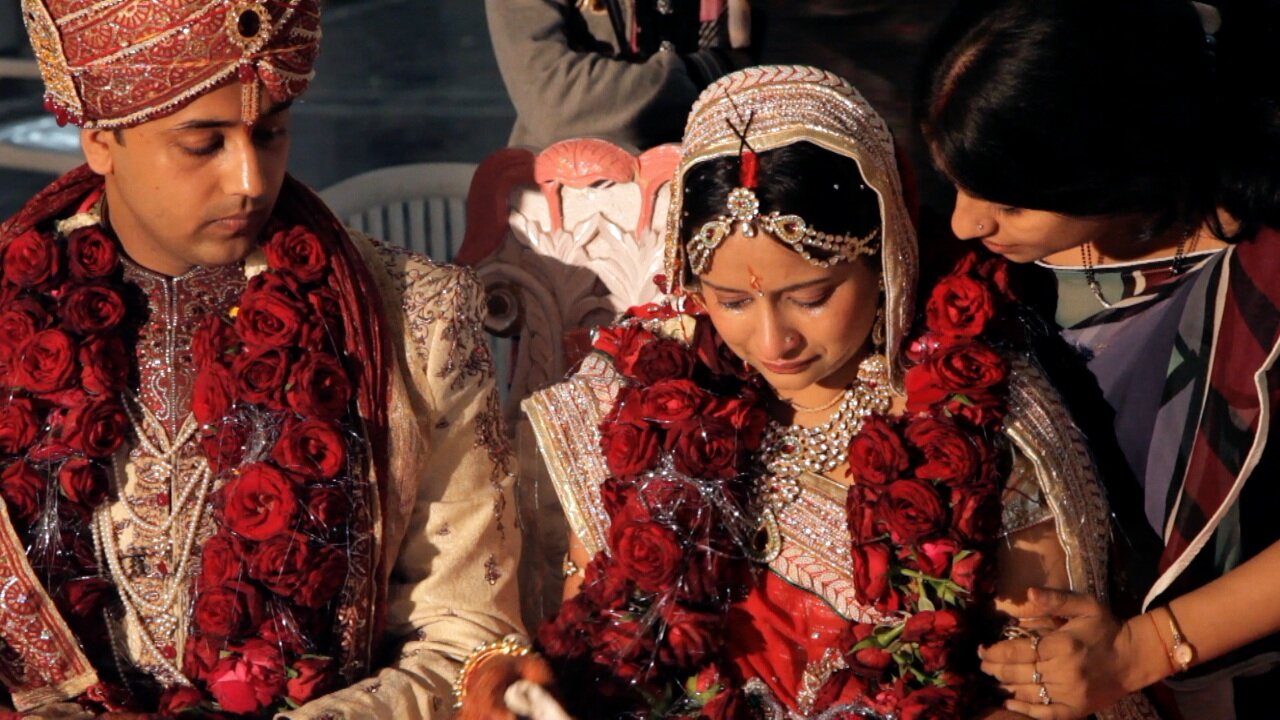Tribeca 2017 Review: A Suitable Girl
In Indian culture there is an understanding that a woman must be married, and when she does she must leave her family to join her husband’s. But while almost every woman is under intense pressure to get married, each woman’s path there is different.
A Suitable Girl follows the lives of three Indian women over four years, as each attempts to navigate the intricate arranged marriage system, and reconcile traditional practices with modern values. First is, Ritu, a highly educated woman working at Ernst & Young, who faces pressure from her mother, a professional matchmaker, while trying to focus on her career. Another woman, Amrita, marries her husband with the promise she will be able to work at his company, a promise which turns out false. And Dipti, a bubbly school teacher, whose unsuccessful search for a husband begins to bear an emotional toll.
To an outsider, arranged marriage seems like a system devoid of romance, with potential life long partners found on paper profiles sitting in binders on a matchmaker’s desk. However, A Suitable Girl portrays a more realistic and nuanced look at this complex system. The film explores how women are judged by potential husbands. Most place more of an emphasis for these women on their appearance than their education, a harsh fact for Ritu and Amrita, who each earned MBAs and acknowledge that marriage may be the end of their working careers. In contrast, Dipti is more hopeful, searching for a life partner through internet dating sites and Rotary Club-sponsored match-making events to find someone as lively as her. And throughout the film, each scene is filled with telling moments which reveal how deeply ingrained gender inequality is in India: from little boys whose sole birthday wish to a Dipti is for her to find a husband, to Amrita’s inability to dress how she wishes because her father in law forbids it.
But even in this deeply patriarchal society, we also see the men who are also resistant to this system. For example, Ruti’s father consistently defends his daughter against her mother’s prodding. Additionally, Ruti’s eventual husband candidly discusses his reasoning for the marriage, also feeling pressured into it by his family. He blatantly states how he would have preferred to be born in Europe and waited to be married in his 40s.
A Suitable Girl explores the range of responses each woman had to the prospect of getting married. To one woman, marriage was happily ever after; to another, it’s the loss of her core identity. While representing a culture different from the West, A Suitable Girlisn’t attempting to draw comparisons to Western dating practices, or pass judgment on which approach to marriage is best. Instead it paints a nuanced portrait of womanhood in India, and questions whether are really arranged marriage and love are mutual exclusive.
These struggles that are universal to all women, no matter their background. A Suitable Girl highlights the binding pressures from society and from one's own family, a significant lack of agency in one’s own decision, and the heavy emphasis on physical appearances that permeate societies around the globe.
In the end, this is not a story about marriage. It is a story about families and the roles they play in the lives of women. Dipti’s search for love is guided by her supportive parents who remain as her greatest confidantes throughout the marriage process. In contrast, Ritu’s parents are divided, her mother pushing for marriage and her father defending her decision to attend graduate school. For Amrita, marriage means leaving behind her own family to join another, erasing her own identity in the process.
A Suitable Girl is an achievement for the directors Sarita Khurana and Smriti Mundhra, the winners of Tribeca Film Festival's Albert Maysles New Documentary Director Award. Through this film, they were able to bring these stories to life, and to give these women a platform to speak candidly about a deeply personal and often painful subject. Their work painted a very honest picture of a modern Indian woman’s struggles in today’s society, as they try to maintain their own agency in a world of systemic pressure.
